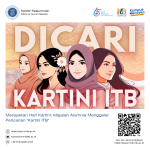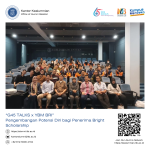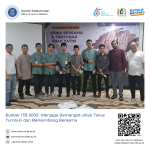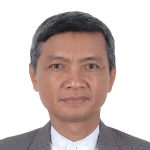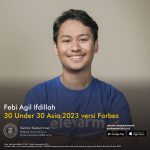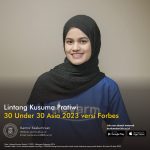[11 Dec. 2020] Development and Mastery of Science and Technology: Identify Problems, Find Solutions!

FREE, OPEN FOR PUBLIC (with quota)
BINAR STEI: Development and Mastery of Science and Technology: Identify Problems, Find Solutions!
Speaker: Prof. Dr. Ir. Tati L.E. Rajab Mengko
Moderator: Prof. Ir. Armein Z. R. Langi, M.Sc., Ph.D
Friday, December 11, 2020
09:30 – 11:00 WIB
Register: https://s.id/binarsteiregister
Access Zoom and E-certificate
The solution to a problem is largely determined by our understanding of the problem at hand. This applies to anything, anywhere, anytime, it involves anyone, can be individuals, groups, institutions, institutions and even countries, to the world level. If it is considered that there is no problem, then of course there will be no attempt to change it, and if the problem formulation is not correct, it is likely that the solution taken will also be ineffective.
In the context of developing and mastering science and technology, does the world of campus in Indonesia have a problem? To explore this, we first need to review what steps our predecessors took: are they still relevant?
What are the changes that have occurred around us?
What opportunities and threats will you face in the future?
In this webinar, several milestones and indicators are known to describe the progress and mastery of science and technology in Indonesia. By bringing up this topic, it is hoped that a discussion and agreement will occur which will lead to a joint effort in bringing the ITB campus forward.
Institutions such as ITB (and other PTN-BH) are expected to be able to become initiators and locomotives to actively follow and explore global science and technology and absorb the development of world science so that it can be applied in various aspects of life.
In this session, the facts and realities as well as the efforts that have been and are being conveyed will be presented, as materials for opening up various ideas which can then be used to determine mutually agreed solution gaps.

